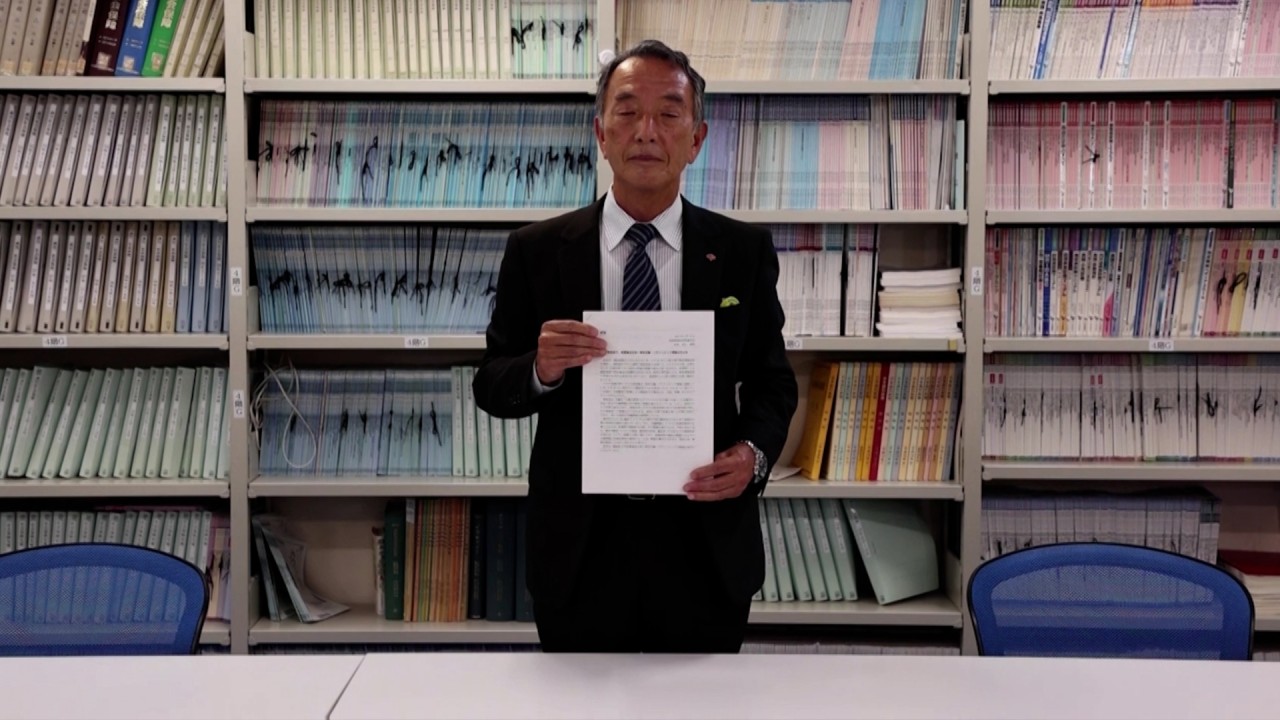
Organisers unveil Olympic Village a month before Games begin in Tokyo
- The village can sleep 18,000 athletes and team members during the Olympics and 8,000 during the Paralympics
- Organisers are mulling having 20,000 spectators in the opening ceremony, according to sources, even as they try to build confidence that the Games will be safe
Organisers are in the home stretch of preparations before the July 23 opening ceremony, and are trying to build confidence that the mega-event will be safe for athletes and the Japanese public.
As they unveiled the dedicated virus clinic, they warned that drinking in groups would be prohibited and said a mixed zone for guests had been scrapped.
Tokyo Olympics: Japan weighs cost of allowing spectators in stadiums
Olympians will also not be given condoms during their stay at the athletes’ village as part of anti-coronavirus measures, the Games’ organising committee said. The athletes will instead receive them upon their departure.
The distribution of condoms has been a tradition during the major sporting event since the 1988 Seoul Olympics, the committee said.
The village, which can sleep 18,000 athletes and team members during the Olympics and 8,000 during the Paralympics, has many warning posters that caution residents to take antivirus measures including room ventilation.

The fever clinic, separate from the main medical facility, will be used to test and isolate people suspected of virus infection or considered close contacts of those who test positive.
“If there is suspicion of being infected … we should be able to properly isolate this person,” said Takashi Kitajima, general manager for the village. “This is just another example of how we are stringently managing matters about possible Covid infections.”
Other measures include reduced seating for diners, Plexiglas shields between gym equipment, and a kit of hand sanitisers and soap to be handed to village residents.
As young people tune out, can Olympics vault over a generation gap?
Built on reclaimed land looking out over Tokyo Bay, the village has been empty except for workers since the event was postponed last March.
Opening in just over a fortnight, the village will be particularly important for athletes this Games because they are barred from going anywhere else except training and competition venues.
Under strict virus rules, athletes will be tested daily and required to wear masks except during competition, eating and sleeping. And there will be no partying, officials warned.
“When you drink alcohol, in principle, you are requested to drink alone,” said Kitajima.

Competitors can only enter the village shortly before their event and must leave within 48 hours of being eliminated or their competition ending.
And conditions will not exactly be luxurious, with single rooms of nine square metres (100 sq ft) and doubles of 12 square metres (130 sq ft).
Beds are made from recyclable cardboard, but are tough enough to stand up to beefy weightlifters and towering basketball players, organisers say.
Olympic officials expect most of those staying in the village will have been vaccinated, but the rules apply regardless of inoculation status, and athletes could be kicked out of the Games if they fail to comply.

In a taste of the challenges ahead, a member of the Ugandan Olympic delegation that arrived in Japan on Saturday tested positive for the virus, despite reportedly being vaccinated and testing negative before travel.
The safety measures are set to make for a Games like no other, with overseas fans already banned and a decision on domestic spectators expected next week.
Organisers are battling public opposition to the Games, with national polls regularly showing most Japanese would prefer the event be delayed or postponed. But recent surveys have showed sentiment may be shifting as the Games approach.
A handful of protesters stood outside chanting against the Olympics as media toured the village, which will be transformed into thousands of luxury bayside condos after the Games.
Meanwhile, Olympics organisers are considering allowing a total of around 20,000 spectators into the Olympic opening ceremony, sources with knowledge of the matter said on Sunday.
The spectator cap for the ceremony will comprise both ticket-holders from the general public and officials related to the games, the sources said, ahead of talks among organisers on Monday to decide on spectator limits.
Suga tells Japanese to watch Olympics on TV, as state of emergency eases
The Japanese government has said it will allow up to 10,000 people at events such as sports games and concerts in areas that are not under a Covid-19 state of emergency or a quasi-emergency, as long as they do not exceed 50 per cent of venue capacity.
The government and Olympic officials are considering applying the policy to the Olympics and the Paralympics due to start on August 24.
For the opening ceremony, however, organisers are expected to create a separate slot for officials related to the games, according to the sources.
Representatives from five organising bodies of the games, including the Japanese and Tokyo metropolitan governments and the International Olympic Committee, will attend Monday’s online meeting.

.png?itok=arIb17P0)

